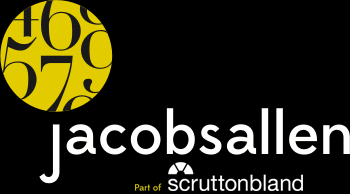Insider – Newsletter July 2023

Tax return helpline to close for three months
Download our July 2023 Newsletter in PDF format here.
The self-assessment telephone helpline has been closed by HMRC for the entirety of summer.
Taxpayers hoping to contact HMRC for help with their self-assessment will now have to use digital services until 4 September 2023.
During this time, HMRC says it will trial prioritising online guidance, digital assistance and web chat.
According to HMRC, the self-assessment helpline has 50% less demand over the summer, even though around 5 million calls are made to the number every year.
Between June and August 2022, nearly 1.2m people called the helpline, with over 900,000 staying on the line to try and reach an agent, with the remainder deciding not to wait on hold.
HMRC says the move will free up 350 advisers who will be able to take on ‘more urgent’ calls on other lines.
Adam Harper, director of professional standards and policy at the Association of Accounting Technicians, said:
“This pilot raises significant concerns about the impact it will have on taxpayers, particularly those who are digitally excluded or who cannot currently access the service they require via digital platforms.
“The need for such a pilot, in order to redirect staff elsewhere, highlights the much bigger challenge that HMRC faces in balancing competing priorities with a constrained budget.”
Talk to us about your self-assessment tax return.
Self-assessment threshold increases to £150,000
HMRC has revealed that the self-assessment threshold for PAYE taxpayers will increase from £100,000 to £150,000 for the 2023/24 tax year.
Currently, individuals taxed through PAYE only are legally required to file a self-assessment tax return if they make more than £100,000 annually.
The threshold change means that fewer taxpayers will need to submit their returns for this tax year, potentially reducing their administrative burden.
In its latest agent update, HMRC said that affected taxpayers should not take action yet, as the threshold remains at £100,000 for the 2022/23 tax year.
Anyone who makes between £100,000 and £150,000 during this period will still need to submit a tax return by the usual deadline on 31 January 2024.
However, those taxpayers will receive a self-assessment exit letter from HMRC after submitting their return — so long as they do not meet any of the other submission criteria.
Taxpayers in business partnerships and self-employed people who earn over £1,000 a year must continue filing their annual returns after the threshold change comes into effect.
Meanwhile, individuals who receive any untaxed income, such as interest on savings or rental payments, may also need to submit a return.
Talk to us about your self-assessment tax returns.
Employee share schemes under review
The Government is running a call for evidence on how to simplify and widen accessibility to employee share schemes.
The Treasury is inviting comments on ‘save as you earn’ (SAYE), the company share option plan (CSOP) and the share incentive plan (SIP) until 25 August 2023.
Through the call for evidence, ministers aim to improve the schemes and make them easier for businesses to set up.
Businesses and representatives can answer questions to help the Government improve the schemes by submitting their responses online.
Employee share schemes give companies ways to incentivise employees by offering them a direct stake in the company, together with a more generous tax treatment.
A Government survey found that a third (31%) of businesses find the schemes too complicated to set up, however, describing them as “time-consuming and costly”.
The evaluation also showed that more than half (55%) of companies did not know whether they had registered for SAYE, CSOP or SIP in the last ten years.
Meanwhile, 38% of these “unaware claimant companies” said they did not offer employee share schemes because of “corporate governance, financing and structure”.
And yet, 81% of respondents said share schemes help boost their business, with almost three-quarters saying the schemes help them retain and recruit staff.
In June 2022, 1,030 employee-owned businesses were running in the UK.
Victoria Atkins, financial secretary to the Treasury, said:
“Employee share schemes are an effective way to boost motivation in workforces by giving people an extra stake in what they do – and they offer a boost for business.
“Growing the economy is a priority for this government, and one way to make this happen is by making these schemes as easy as possible to set up.”
Get in touch to talk about your employee share scheme.
LITRG warns of ineffective tax refund companies
Tax specialists at the Low Incomes Tax Reform Group (LITRG) have warned taxpayers who use third-party companies to claim tax refunds from HMRC to do so cautiously.
Although taxpayers can apply for a refund directly from the Government, some prefer to use agents to do so on their behalf.
If HMRC decides at a later date that the refund was invalid, however, it can request those taxpayers to repay the full amount plus interest.
As well as requesting repayments from taxpayers, HMRC can also issue penalties. In extreme cases, HMRC may be able to claim overpayments dating back 20 years.
To help taxpayers avoid invalid claims, LITRG has published some key information to consider before applying for a tax refund.
- Choose an agent carefully. LITRG stresses that while most refund companies are completely legitimate, others may not be. Taxpayers must carefully read through any terms and conditions set out by a company.
- Carefully check your claims. Legitimate agents will ask you to provide proof to support your claim, and review it before they submit it.
- You’re responsible for your tax return. Even if you use an agent, receive payment and settle the agent’s fees, you will have sole responsibility for any repayments to HMRC if your claim is invalid.
- Do not share your Government gateway details. A good refund agent will have their own software, so you should not need to provide your details.
- If it looks too good to be true, it likely is. If a company approaches you about a tax refund out of the blue, it may not be legitimate.
Joanne Walker, LITRG technical officer, said:
“If the promise of a tax refund sounds too good to be true, the chances are it probably is. Therefore, it is important that taxpayers think about the risks before using an agent to claim a tax refund on their behalf.”
Contact us to discuss your tax returns.

